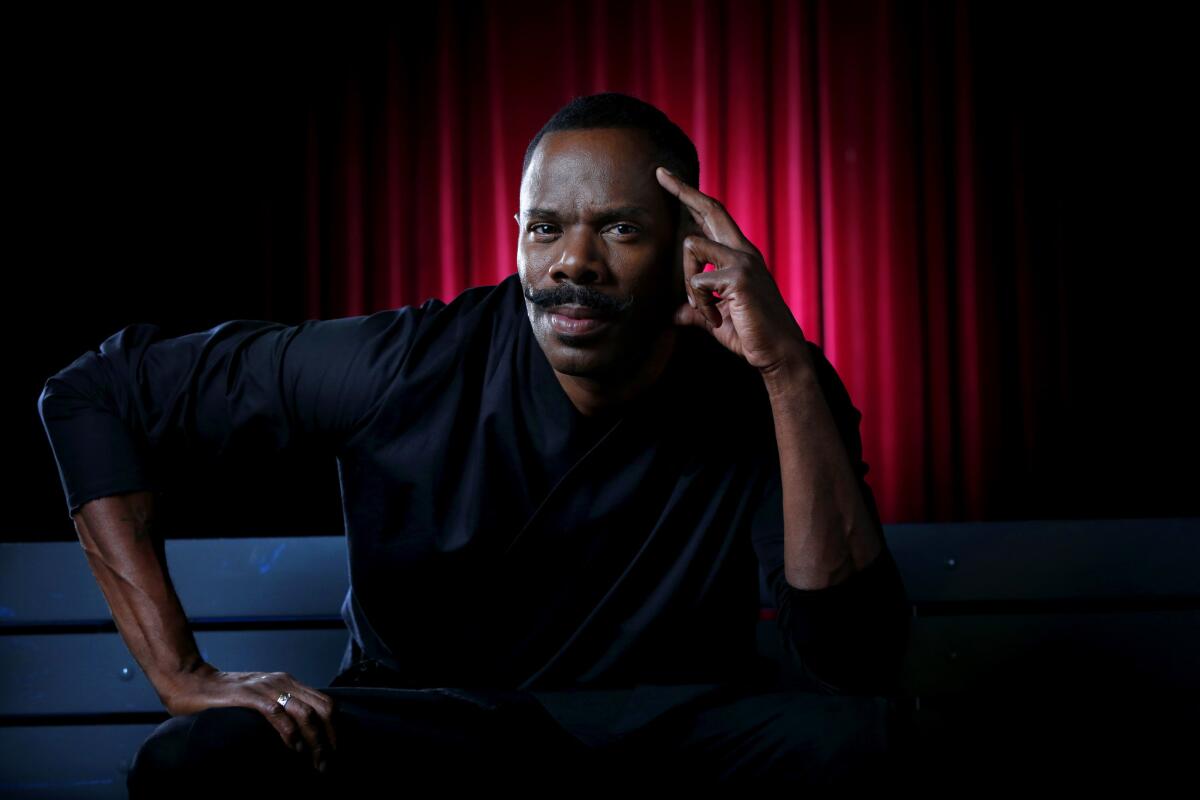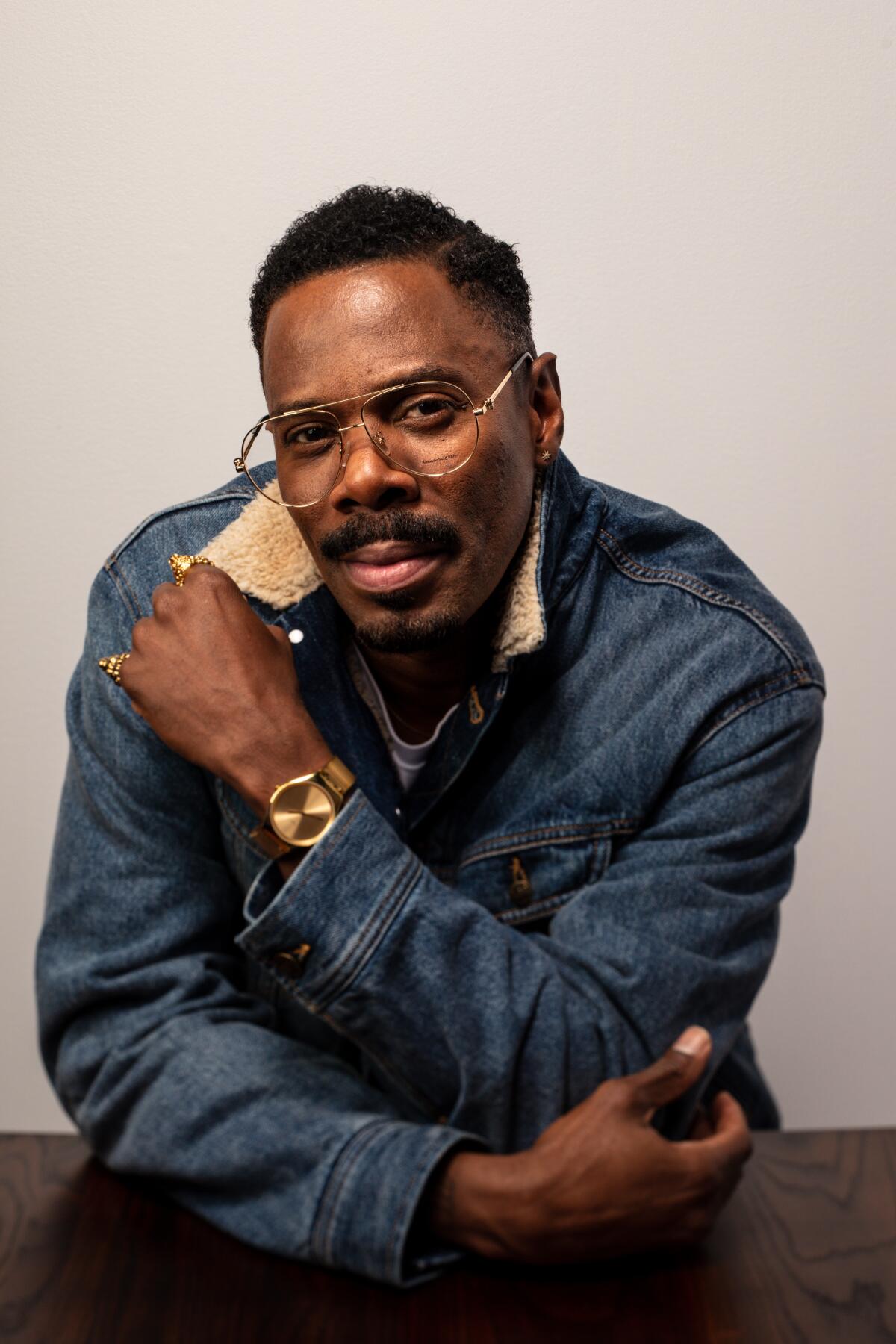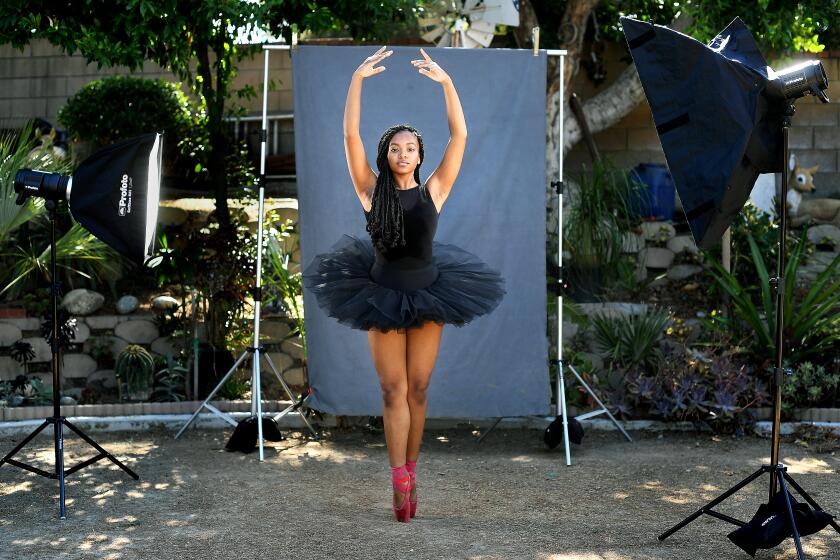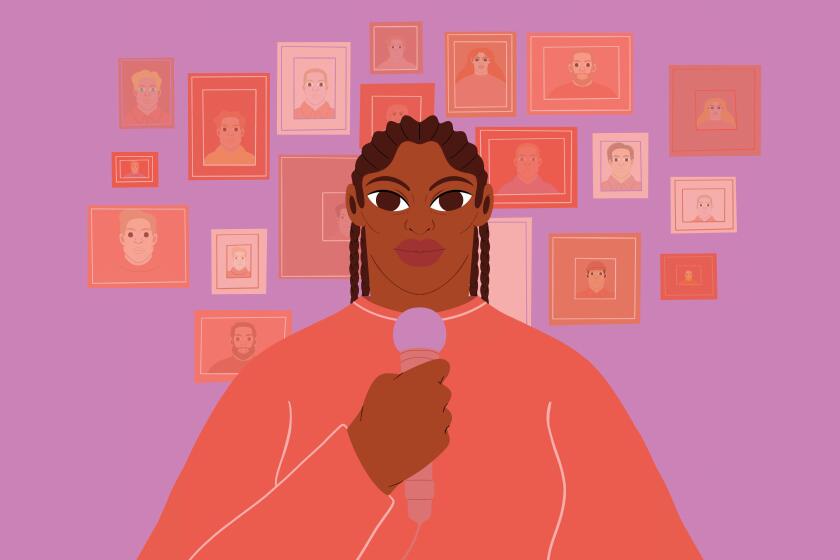For Colman Domingo, the point of his new theater award: Support Black men

And the award for best timing in the creation of a new award goes to: the Colman Domingo Award.
Domingo, 50, may be best known for âFear of the Walking Deadâ and other TV and movie work, including a supporting role in the upcoming Netflix film version of August Wilsonâs play âMa Raineyâs Black Bottomâ with Viola Davis and Chadwick Boseman. But Domingo also has a long, distinguished theater career as an actor, playwright, director and producer. When the Vineyard Theatre in New York honored his work with a gala a year ago, Domingo said he felt moved to give something back.
And so he and Sarah Stern, one of the Vineyardâs artistic directors, set about creating the Colman Domingo Award, which was announced last month. It provides a multifaceted African American who identifies as male with $5,000, studio space, mentoring and other support. (Domingo was willing to underwrite the award himself to start, but he said the first two years are being funded by an African American General Electric executive and arts lover whom he met on a plane.)
âI looked around and saw that there were not a lot of award opportunities to support the work of African American men or male-identified persons,â Domingo said. âItâs time for that. I wanted to support the next generation of artists, creating something I wish had existed when I was a young artist.â
Stern said that they had a conversation about the gender specifications of the award and that Domingo âfelt so strongly about the particular obstacles for Black men and male-identifying artists.â
For those studying music, dance, film, visual art or theater at the college level, the pandemic threatens crucial in-person instruction and practice.
âThere are many more such programs for women, as there should be,â Domingo said in an interview. âBut when Iâve gotten the chance through Sundance or New York Theatre Workshop to go away to write or just focus on creating without worrying about money, it was so helpful and it was such a rarity.â
Domingo wanted a grassroots search, so he put out a call for submissions on social media, while Stern also sought recommendations. He said that they received plenty of excellent submissions but that many were from people further along in their careers, with more leverage from jobs writing for TV, for example.
âWe wanted someone on the brink, who needed a little lift,â he said.
He said the final submission they received was from York Walker, who has an MFA in acting and has written plays, including âYouâre Gonna Be Famousâ and âCovenant.â
âHis work spoke for itself â heâs going to be on the shoulders of August Wilson,â Domingo said. âThen we spoke to him, and he was a great guy too, someone youâd want to support.â
The entire process took a year, and Domingo and Stern ended up choosing Walker during protests after the killing of George Floyd. They had planned to wait a few weeks before announcing the award and the inaugural winner, but Domingo pushed up the date. âI said, âWe have to put it out right now. This is time for leadership,ââ he said.

Domingo and Stern said creating meaningful change will require leadership not only from within theaters and other institutions but also from individuals with the clout to foster change.
âThe theater ecosystem is pretty dismantled right now and there is a chance to rebuild in a way that is more equal, inclusive and supportive,â Stern said. âItâs going to take everybody.â
Domingo said he wanted to put his name on the award to make clear itâs not just the institutions but also individuals who can have an impact. âIâm putting my name on it to help create a legacy,â he said. âAllies are asking, âWhat can I do?â This is something both theatrical institutions and fellow artists should do. You can create opportunities for diversity and equality.â
Our arts coverage depends on your support. Please consider a digital subscription.
Interviews with more than a dozen BIPOC performers and staff at the Groundlings and UCB reveal systemic problems within L.A.âs sketch and improv world.
More to Read
The biggest entertainment stories
Get our big stories about Hollywood, film, television, music, arts, culture and more right in your inbox as soon as they publish.
You may occasionally receive promotional content from the Los Angeles Times.












